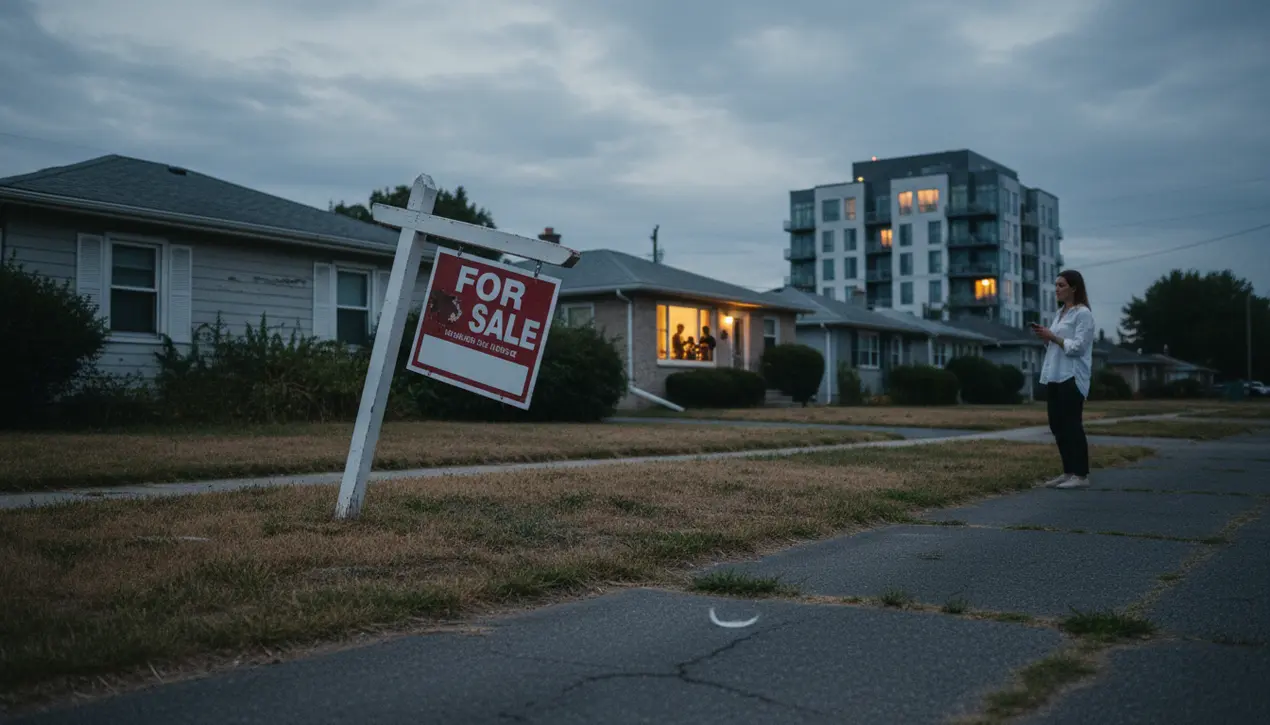
Otherreal estateHousing Market Trends
The Myth of Homeownership: Why Renting Might Be the Smarter Financial Move
ET
Ethan Brown
2 hours ago7 min read
For generations, the white picket fence has been the ultimate symbol of success, the cornerstone of the American Dream. But what if this deeply ingrained ideal is a financial trap? Jerusalem Demsas, editor-in-chief of The Argument, presents a compelling case that challenges this orthodoxy, arguing that homeownership is an overrated and often risky path to wealth.This isn't mere contrarianism; it's a data-driven reassessment of a core financial belief. The conviction is powerful—70 percent of Americans view owning a home as essential to their dream.Yet, Demsas, a contented renter, champions the freedom that comes without a mortgage: liberation from crippling maintenance costs, the agility to relocate for career opportunities, and immunity from the myth of guaranteed real estate returns. The financial argument for buying rests on two flawed premises.The first is the 'forced savings' plan of building equity. This ignores the massive, recurring costs of ownership—rising property taxes, insurance, and sudden, five-figure repairs for a new roof or failed furnace that can obliterate an emergency fund.The second, more perilous myth, is the promise of high returns. Historical data from the Federal Reserve and academic studies reveal a different story: the S&P 500 has historically provided average annual returns of around 10% before inflation, while housing appreciation typically lags at 3-5%.To even approach stock market gains, a homeowner must perfectly time the market, avoid economic crises like 2008, and never face a forced sale due to a job loss or medical emergency. The steep transaction costs of 5-10% in agent commissions and fees can alone erase years of theoretical profit.A more prudent strategy, often favored by investors like Warren Buffett, is to take the capital that would be tied up in a down payment, closing costs, and renovations and consistently invest it in low-cost, diversified index funds. This approach offers superior liquidity, diversification, and historically stronger returns without the burden of a single, leveraged, and illiquid bet on one property.The psychological allure of ownership, however, runs deep. It's embedded in our national identity as a mark of stability and community, an ideal promoted through a politically charged history that framed renters as transient and less committed.But this social contract is fracturing. For younger generations and city dwellers, buying often means a brutal compromise: exiling oneself to distant suburbs for affordability, sacrificing community ties and adding hours to a daily commute.Renting, conversely, can grant access to vibrant, walkable neighborhoods that foster a more immediate and practical sense of community than a property deed. Ultimately, the American Dream was always about freedom—economic security and the autonomy to live life on your own terms.We have mistaken the house for the dream itself. In a volatile economy, concentrating the majority of your net worth in a single, expensive, and illiquid asset can feel less like freedom and more like a golden chain.True financial independence isn't defined by a mortgage; it's built on liquidity, flexibility, and a diversified portfolio that allows you to navigate life's uncertainties and seize new opportunities. Perhaps it's time to redefine success not by the home we own, but by the life we can build within it.
#homeownership
#renting
#real estate
#personal finance
#American dream
#featured
Stay Informed. Act Smarter.
Get weekly highlights, major headlines, and expert insights — then put your knowledge to work in our live prediction markets.
Related News
Comments
Loading comments...
© 2025 Outpoll Service LTD. All rights reserved.